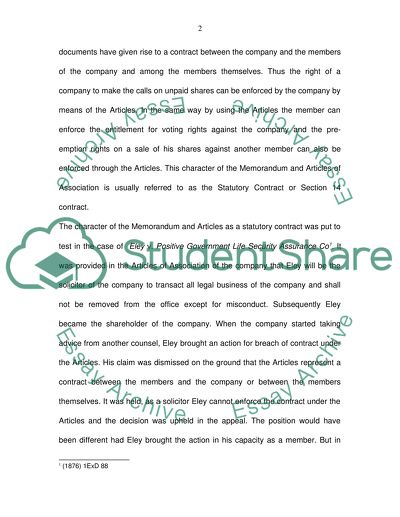Cite this document
(“Companies Act Essay Example | Topics and Well Written Essays - 2500 words”, n.d.)
Companies Act Essay Example | Topics and Well Written Essays - 2500 words. Retrieved from https://studentshare.org/law/1523417-companies-act
Companies Act Essay Example | Topics and Well Written Essays - 2500 words. Retrieved from https://studentshare.org/law/1523417-companies-act
(Companies Act Essay Example | Topics and Well Written Essays - 2500 Words)
Companies Act Essay Example | Topics and Well Written Essays - 2500 Words. https://studentshare.org/law/1523417-companies-act.
Companies Act Essay Example | Topics and Well Written Essays - 2500 Words. https://studentshare.org/law/1523417-companies-act.
“Companies Act Essay Example | Topics and Well Written Essays - 2500 Words”, n.d. https://studentshare.org/law/1523417-companies-act.


